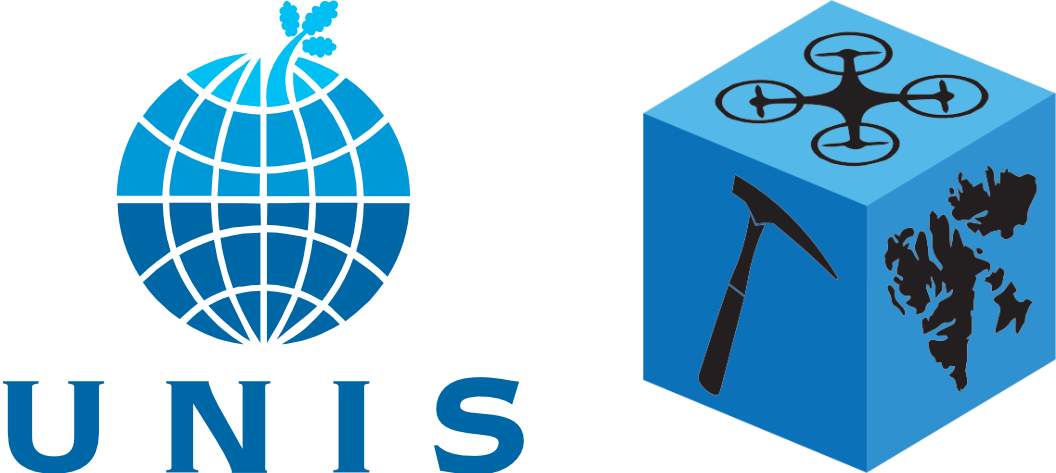The Svalbard Rock Vault pilot project is inviting geologists and geology friends to participate in the Svalbard Rock Vault Paleoclimate Days workshop to be held from 24th to 26th November 2021 at UNIS in Longyearbyen.
Both in-person and online participation is possible. The full agenda and practical details on registering for this free workshop is provided under the following link:
https://docs.google.com/document/d/1OJ01oVgRqAxLVtisHGvEuySTmoI_4x0MaKWkBLLj92Q/edit?usp=sharing
Please register for the workshop ASAP and latest by 19th November 2021 using this form: https://forms.gle/pyM7NffkPesaSVY87
SVALBARD ROCK VAULT: Taking care of geological data and developing critical infrastructure for geoscientific research and education projects
From vision towards reality: a pilot project for 2019-2020 (RockVault2020)

Numerous companies and research consortia have drilled onshore Svalbard in the quest for coal, oil/gas, CO2 storage and research projects. Unfortunately, the resulting unique geological data sets are not formally managed by a single institute as would be the case on the Norwegian mainland or the Norwegian continental shelf, and there is a real danger for much of this geological heritage to be lost.
To prevent this from happening The University Centre in Svalbard (UNIS) and the Svalbard-based coal-mining company Store Norske Spitsbergen Kulkompani (SNSK) joined forces and organized the Svalbard Rock Vault workshop from 24 to 26 September 2018 in Longyearbyen, with generous funding from the Svalbard Science Forum. Key organisations presented their viewpoints and experience with dealing with material from Svalbard. These included:
- Peter Brugmans / The Directorate for Mining with the Mining Commissioner for Svalbard / responsible for managing exploration, claims and resource extraction
- Synnøve Elvevold / The Norwegian Polar Institute / responsible for topographic and geological mapping of Norwegian Polar areas, including Svalbard
- Tom Heldal & Rolf Lynum / The Geological Survey of Norway / responsible for a national onshore physical sample and drill core repository at Løkken
- Maria Juul / The Norwegian Petroleum Directorate / responsible for a national offshore database related to geoscientific data from the Norwegian Continental Shelf including drill core samples
- Sverre Planke / CEED/ARCEx/VBPR researcher with Svalbard and international research drilling experience including Permian-Triassic mass extinction scientific drilling on Svalbard
- Malte Jochmann / Store Norske Spitsbergen Kulkompani / company with 100 years of coal exploration and exploitation on Svalbard, and currently maintaining a core storage facility near Longyearbyen
- Kim Senger / University Centre in Svalbard / teaching and educating in the high Arctic, currently maintaining both internal and external geodata portals (Svalbox.no) and with access to significant amount of research drilling material
Presentations were also given by Russian (PMGE), German (BGR), British (Sedgwick Museum, University of Cambridge) and Norwegian (University of Stavanger) scientists. Furthermore, spotlights were directed on the petroleum exploration onshore Svalbard and on loss of important drill core material from the Kings Bay coal field in the 1980s. Finally, SIOS shared its views on data management, and SSF presented both funding and co-ordination tools currently in place.
The concluding panel debate (Header), and discussions throughout the workshop, clearly indicated that Svalbard is in many cases “between the chairs” with respect to how important geological data are collected, archived and made available to the wider research community. Procedures from onshore (NGU) and offshore (NPD) Norway do not apply on Svalbard, and there are ample examples of how irrecoverable drill core material is lost. The wide group of participants was in general positive to the idea of having a physical data repository on Svalbard, coupled with a Geodata portal linked to existing data repositories. Thus a 2-year pilot project was initiated: the “Svalbard Rock Vault: From vision towards reality – a pilot project for 2019-2020 (RockVault2020)”, funded though a strategic grant from the Svalbard Science Forum.
The Figure below illustrates the forward-looking RockVault2020 project and its main components. We strive both to catalogue and archive existing material (physical material and electronic data/documents) as well as plan for more geoscientific data that will be collected on Svalbard in the future. In addition, the project allows for developing a long-term strategic plan for future data acquisition on both new and existing drill core material.

Svalbard Rock Vault 2020 aims to:
- safeguard the geological heritage (e.g., drill cores) from Svalbard from being lost during the turbulent times associated with a rapid decrease in coal mining activity
- facilitate geoscientific co-operation on Svalbard through allowing better access to physical geoscientific material as well as geoscientific data as such
Both of these require long-term financing and an organizational model. In the 2-year Svalbard Rock Vault 2020 pilot project we have an ambition to solve these issues and pave the way for a physical Svalbard Rock Vault facility in Longyearbyen beyond 2020.
For more information on the Svalbard Rock Vault initiative, and to become involved, please contact the project managers Kim and Malte.
| Dr Kim SengerAssociate Professor, Structural Geology The University Centre in Svalbard PB 156 N-9171 Longyearbyen Tlf. +47 92 29 15 92 kim.senger@unis.no | Malte Jochmann, Senior geologist Store Norske Spitsbergen Kulkompani AS PB 613 N-9171 Longyearbyen Tlf. +47 41608779 malte.jochmann@snsk.no |
